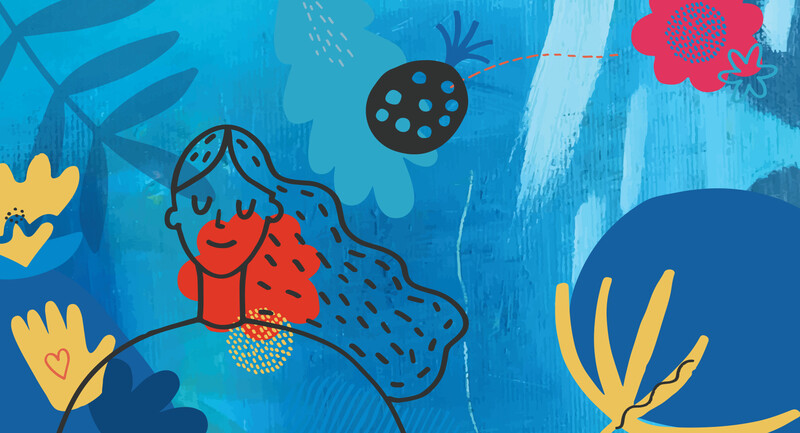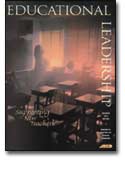At the middle school where I teach, a parking lot sign reads "Beyond This Point." This cryptic message probably had a first half, like "No Parking" or "No Cars," but I've come to enjoy the philosophical possibilities suggested by what's left: Beyond This Point.
I recently returned to teaching after a five-year hiatus to stay home with my children. Although I prefer teaching elementary school, I accepted a position teaching French at the local middle school. In 13 years of teaching, I had taught every age except the middle, but two of my former schools included 6th, 7th, and 8th graders. I had seen enough middle school behavior to conclude that this level wasn't for me. My initial contacts with my students confirmed my suspicions. I had never seen such poor behavior and lack of discipline. Never before had a student sworn or screamed at me. To say that I was overwhelmed would be a gross understatement.
I had always thought of myself as having strong classroom management skills and an orderly classroom. Language classrooms are by nature noisy, but I could control the volume and keep my students on task. True, I had been away from teaching for five years, but teaching is like riding a bike: You may get rusty, but you never forget. Faced with class after class of unruly, loud, unpredictable middle school students, I felt like a novice—entirely out of control.
I was in a state of shock for the first two months. Every morning as I drove into the parking lot, I read the words Beyond This Point and thought, What would happen if I just kept driving beyond this point? Beyond this school, beyond this job, beyond these students whose behavior seemed more than I could handle? My colleagues' glowing enthusiasm for teaching middle school only intensified my feelings of isolation and failure. Some days were like an out-of-body experience because I had the distinct impression that I was the only one in the classroom who knew that I was there.
Day after day, I focused on teaching, plowing through what I wanted to cover no matter what, trying to avoid the inevitable moment when I would have to stop to discipline, to send someone out of the room, or to write a detention slip and lose the rest of the class. I resented the time I spent on classroom management as an inconvenience and an unnecessary interruption. I felt that I was trying to teach with one hand and maintain control with the other. The struggle left me exhausted and numb. How dare these little middle schoolers impede my teaching?
Gaining Control
I was lucky to have a sensitive, enlightened supervisor observe me on several occasions. She made a few suggestions, but she knew as well as I did that my classroom was my problem and that I would either sink or find a way to swim.
"Don't forget to have fun," she said kindly. "It doesn't look like you're having very much fun." As a middle schooler would say, no duh. I decided to take stock of my classroom, to observe the chaos instead of trying to control it. Students were talking, getting out of their seats, writing notes. One student sat on the floor, pretending that his chair was a race car.
That's it, I thought. I may not teach anything today, but I will manage this classroom. I took out a detention slip and under "reason" wrote, "Engaging in a disturbing activity with a chair." Silently I handed it to the race-car driver. His face turned red, and he started laughing. A classmate grabbed the slip. Soon it was passed all around the room, and the whole class was laughing. I found it impossible not to join in.
After that, a few of my students broke through my shell shock. They acted as if there was a person inside their stunned French teacher, and I began to reciprocate. Some students' behavior was still extreme, and I felt out of control most of the time, but I was no longer emotionally and psychologically shaken. I still had out-of-body episodes, but at the end of the day, my soul returned to my body. I was alive, and people in my life acknowledged my presence and acted in a reasonably predictable manner. I survived.
Each morning I read the sign Beyond This Point and occasionally entertained the fantasy of driving beyond the school and never coming back. Most days, however, I tried visualizing a psychological point beyond which I would not only survive but also prevail.
A Growing Understanding
By speaking to counselors and team teachers about my difficult students, I started to understand their disruptive behavior. Some were ADHD, some were wards of the state, and others were victims of abuse. Some students were left alone at home for days at a time, taking care of siblings and getting themselves to school. One student had witnessed her mother's death; another had seen his younger sister killed in a car accident. I still had to deal with and try to change their disruptive behavior, but the task became easier when I attempted it with empathy and understanding instead of anger and frustration. To be sure, the behavior of some students could not be explained, but in many cases, I was more impressed by the fact that the student functioned at all than by his or her negative classroom behavior.
As always, I grew fonder of my students as the year wore on. I began to see how much they were still children, stuck in their changing bodies, between childhood and the grown-up world. Today's middle schoolers face, in many ways, the decisions my generation dealt with in high school: sex, drugs, power, authority. They are, more than we were at their age, stuck in the middle. I began to worry less about myself and more about them.
I don't feel terribly successful yet. I can say, however, that on many days, I actually enjoy my job. My students have made the difference, not only by acknowledging my presence, but also by letting me know in their charming, middle school way that I matter to them. I need only one or two friendly kids at the end of a rotten day to give me a reason to return.
Through these students, I have come to understand that my job as a middle school teacher is not to control my classroom 100 percent of the time or to turn out French scholars or to become the most popular teacher in the universe. I will be happy if I can help get some of my students successfully beyond this point.





